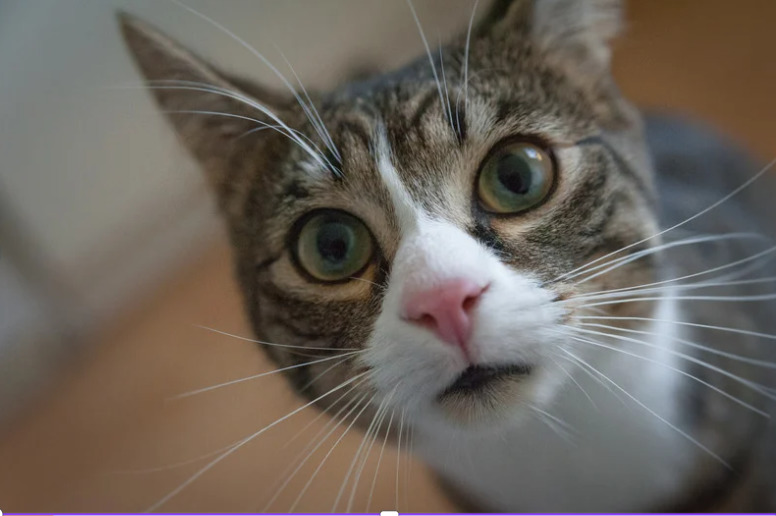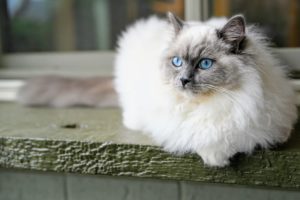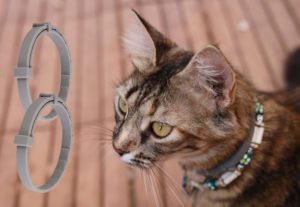As a cat owner, you might have encountered the unpleasant situation of dealing with cat hairballs. These are caused when your cat consumes hair while grooming, which accumulates in their stomach and is subsequently vomited.
To prevent hairballs, it is suggested that you groom your cat regularly and provide them with a high-fiber diet. In this article, I will share some valuable tips to help you prevent your cat from developing hairballs.
What Do Cat Hairballs Look Like?
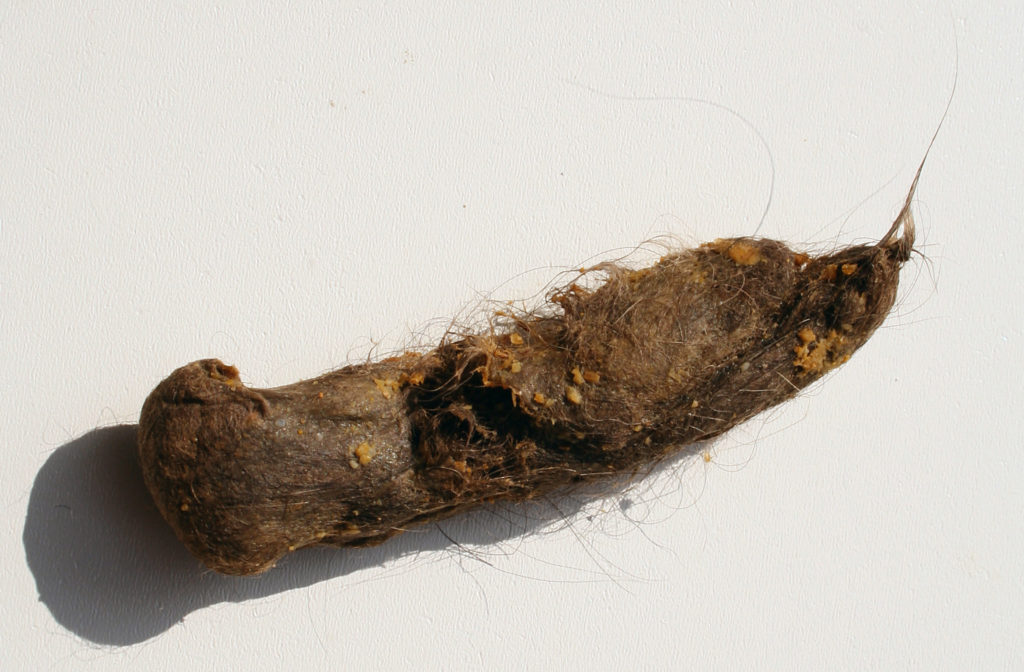
A hairball is a collection of undigested hair and other materials that tend to accumulate in the stomachs of animals. This is a common occurrence in cats, who are especially prone to hairball formation.
This is primarily because they groom themselves by licking their fur, which can cause them to ingest loose hair. Over time, this hair accumulates in their stomachs, leading to the formation of hairballs.
If not expelled through vomiting, hairballs can cause blockages in the digestive tract, which can be quite dangerous for cats.
Hairballs are usually cylindrical and can vary in size depending on the quantity of fur and other material that has accumulated in the cat’s stomach.
They can be tight and elongated and may have a rough or smooth surface. The color of a hairball depends on the cat’s fur, ranging from light to dark. Some hairballs may also have bits of undigested food or bile, making them appear more colorful.
How to Prevent Cat Hairballs?
Hairballs are a common issue in cats, but there are steps you can take to prevent them and keep your feline companion healthy.
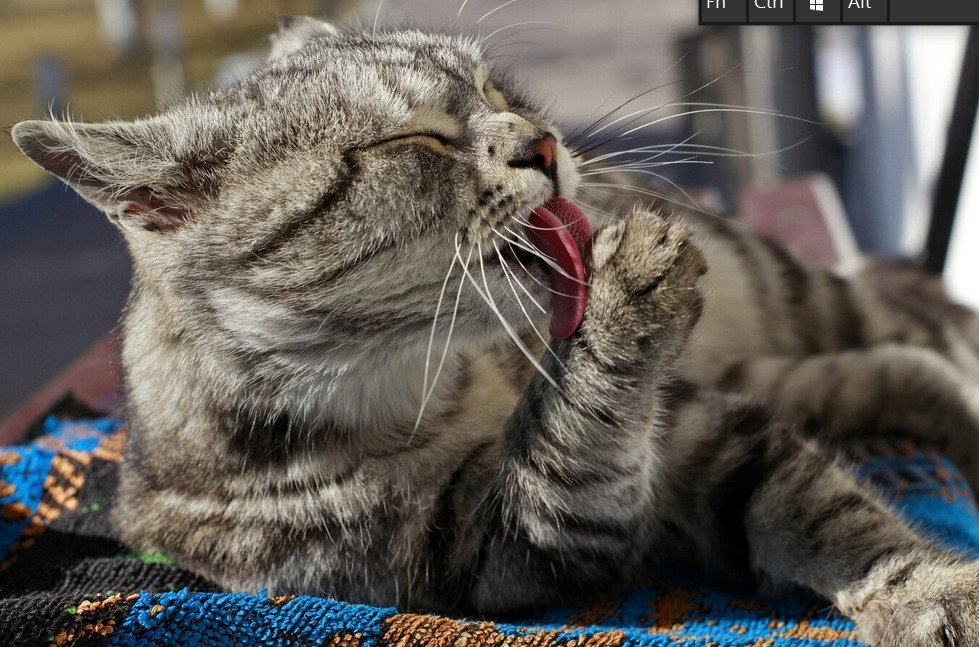
However, if your cat has Frequent hairball formation, it may indicate an underlying health issue that requires treatment. Therefore, it is crucial to see your veterinarian if the problem persists.
They can help identify the problem and suggest appropriate treatment for your furry friend.
For cats with occasional hairball problems, these measures and home remedies can help reduce hairballs.
Regular Grooming
Regularly brushing your cat reduces the amount of loose fur they ingest, which is particularly important for long-haired breeds. Regularly brushing your cat reduces the amount of loose fur they ingest, which is particularly important for long-haired breeds.
Hairball Remedies
There are different forms of hairball remedies, such as gels or treats that can assist your feline friend in passing hairballs with ease. These remedies work by lubricating the digestive tract and facilitating the expulsion of hairballs.
Such remedies can be a practical and proactive approach to ensure your cat’s overall health and comfort.
Provide Plenty of Water
It’s crucial to ensure your feline friend can access clean and fresh water throughout the day. This is especially important as it can aid in the smooth passage of hair through their digestive system, preventing hairballs and other digestive problems.
Providing a constant supply of water is a simple yet effective way to help maintain your cat’s overall health and well-being.
Regular Vet Checkups
Regular visits to the veterinarian are crucial to maintaining your cat’s overall health. During these routine checkups, your vet can assess potential issues, including chronic hairball problems.
They can provide personalized recommendations and treatments to help manage your cat’s hairball issues and ensure they remain healthy and happy. Schedule these appointments annually to give your cat the best chance at a long and fulfilling life.
Homemade Remedies
Some natural remedies, for example, adding a small amount of plain canned pumpkin or petroleum jelly to their diet, can help lubricate their digestive system and make it easier for them to pass hairballs.
However, before trying any homemade remedies, it’s essential to consult with your vet to ensure that they are safe and appropriate for your cat’s specific needs.
How Do I Know if My Cat Has a Hairball Stuck?
Cats can experience hairball blockages that may lead to a variety of symptoms: According to PetMD, symptoms of cat hairballs include:
- If your cat is constantly vomiting, it may be a sign of hairball blockage.
- Your cat keeps on having ongoing retching, gagging, or hacking without producing a hairball
- Other symptoms you will notice are Abdominal pain, discomfort, and Lethargy
- Your feline friend is experiencing frequent episodes of constipation, resulting in difficulty passing fecal matter.
- A hairball that gets trapped in your cat’s stomach can lead to loss of appetite.
How Can I Help My Cat Pass a Hairball?
If your cat is having difficulty passing a hairball, there are ways to improve their digestive health and make it easier. Here are some tips to help your cat pass a hairball:
Regular Brushing
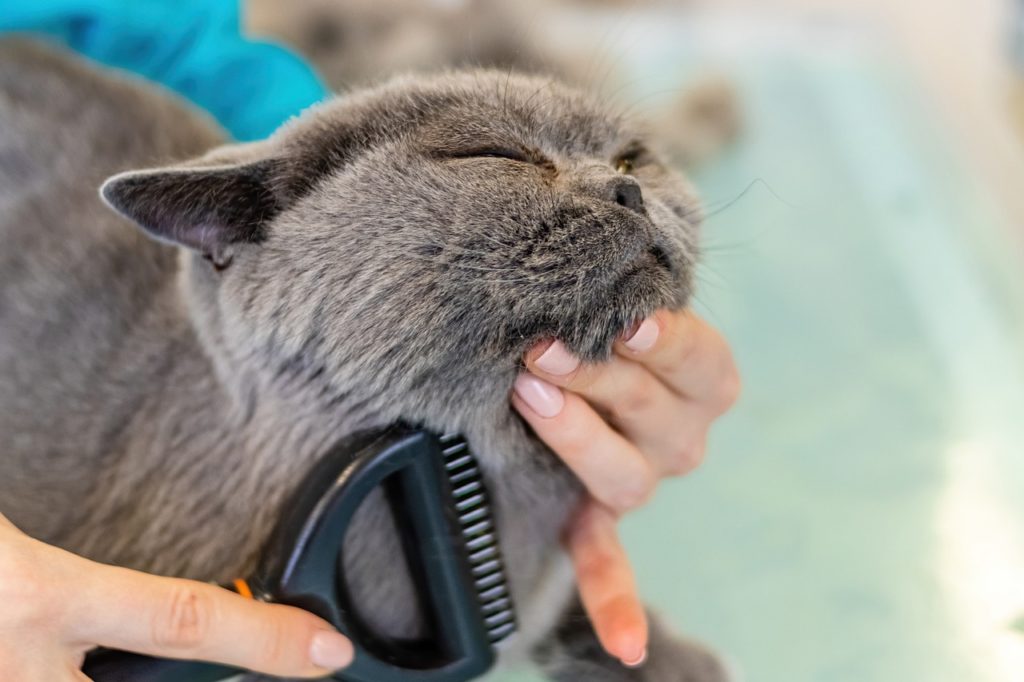
Regularly brushing your cat is an essential part of their grooming routine. It not only removes excess fur, but it also helps prevent hairball formation.
When cats groom themselves, they ingest a lot of fur, which can accumulate in their stomach and cause digestive issues.
By brushing your cat regularly, you can help remove any loose fur before your cat ingests it, reducing the risk of hairballs.
Bathing
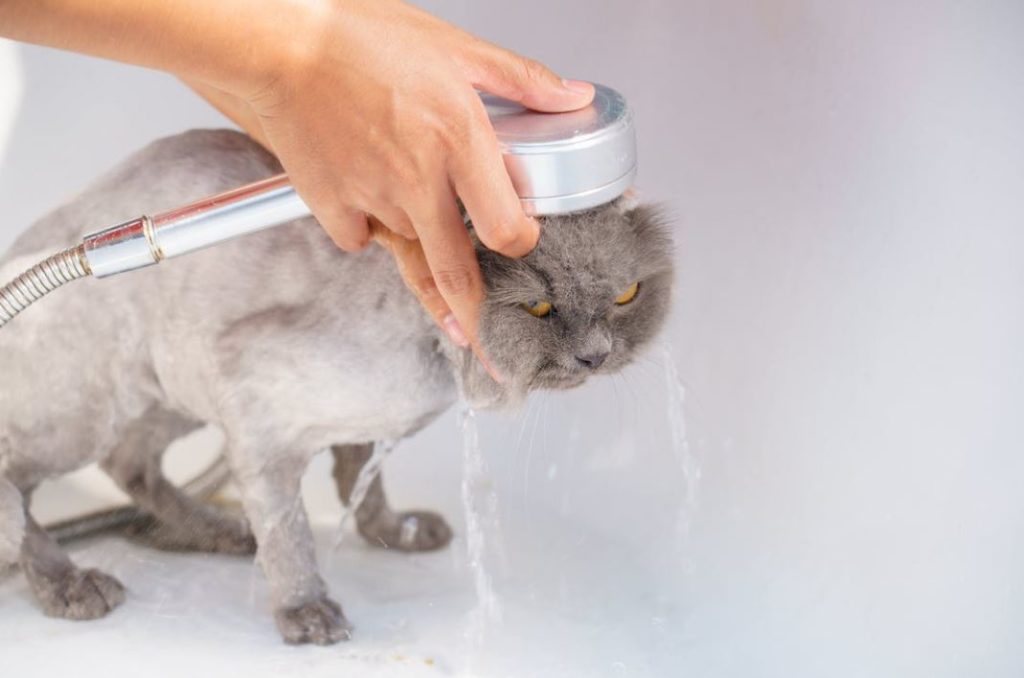
Regularly bathing your feline friend can be a great way to keep their coat healthy and shiny.
Not only does it help to eliminate excess hair, but it can also minimize the occurrence of hairballs, which can be a common issue in cats.
It is essential to use a shampoo that is specifically formulated for cats and to make sure the water temperature is lukewarm to avoid discomfort.
Use Pet Wipes or Damp Paper Towel

To keep your pet’s fur clean and healthy, it’s essential to collect loose fur after brushing or bathing.
You can do this by gently using pet wipes or a damp paper towel to wipe away any excess hair. This will not only help to reduce shedding but also keep your pet’s coat shiny and smooth.
Pumpkin Powder with Fiber
To help your furry friend move hairballs through their digestive system, consider adding pumpkin powder with fiber to their diet.
This ingredient can assist digestion and ensure smoother elimination, keeping your cat healthy and comfortable.
Hairball Control Treats or Foods
To prevent hairballs, it is a good idea to incorporate treats or foods with added fiber into your cat’s diet.
This added fiber helps to move hair through the digestive system, reducing the likelihood of hairballs forming in the first place.
By making this slight adjustment to your cat’s diet, you can help them stay healthy and comfortable.
Fish Oil
If your cat is prone to hairballs, consider adding fish oil to their diet.
Fish oil, which can be obtained from canned fish or tuna, is a natural lubricant that helps to ease the passage of hairballs through the digestive tract.
This can reduce discomfort and prevent potential health complications caused by hairballs.
Ensure Adequate Water Intake
It’s essential to ensure your furry feline friend stays hydrated and drinks enough water to avoid hairball problems.
Encouraging your cat to drink water regularly can help prevent hairballs and promote overall health and well-being.
Cat Grass
Cat grass can be a helpful natural remedy. This type of grass is rich in fiber, which can aid in digestion and promote bowel movements.
Additionally, cat grass can provide essential nutrients that may be missing in your cat’s diet.
It’s important to note that not all types of plants are safe for cats to consume, so be sure to choose cat-friendly grass varieties.
Conclusion
In this article, we talked about cat hairballs, their appearance, and ways to prevent and treat them in cats. Although these tips can help manage hairballs, it is crucial to seek personalized advice from a veterinarian if your cat is experiencing recurring hairball issues or showing signs of distress.
More information
- https://www.vetwest.com.au/news/3-steps-for-managing-hairballs
- https://pets.webmd.com/cats/guide/what-to-do-about-hairballs-in-cats#1
- https://www.petmd.com/cat/conditions/digestive/c_ct_cat_hairballs
With a passion for cats and years of experience in cat care and grooming, I have gained valuable insights and expertise that I want to share with other cat lovers. I believe that every cat deserves the best care possible, and through this platform, I aim to empower cat owners like you to provide the utmost love and care for your feline companions.
